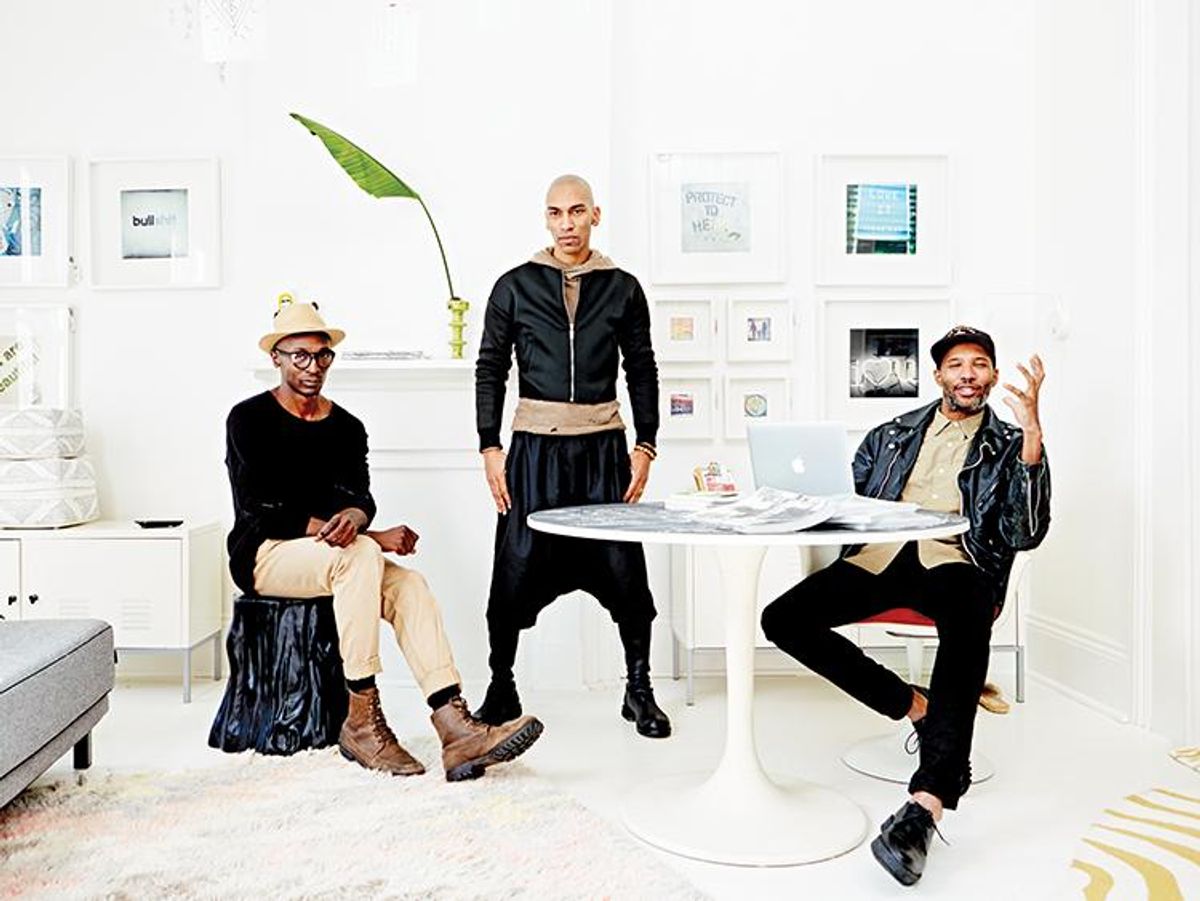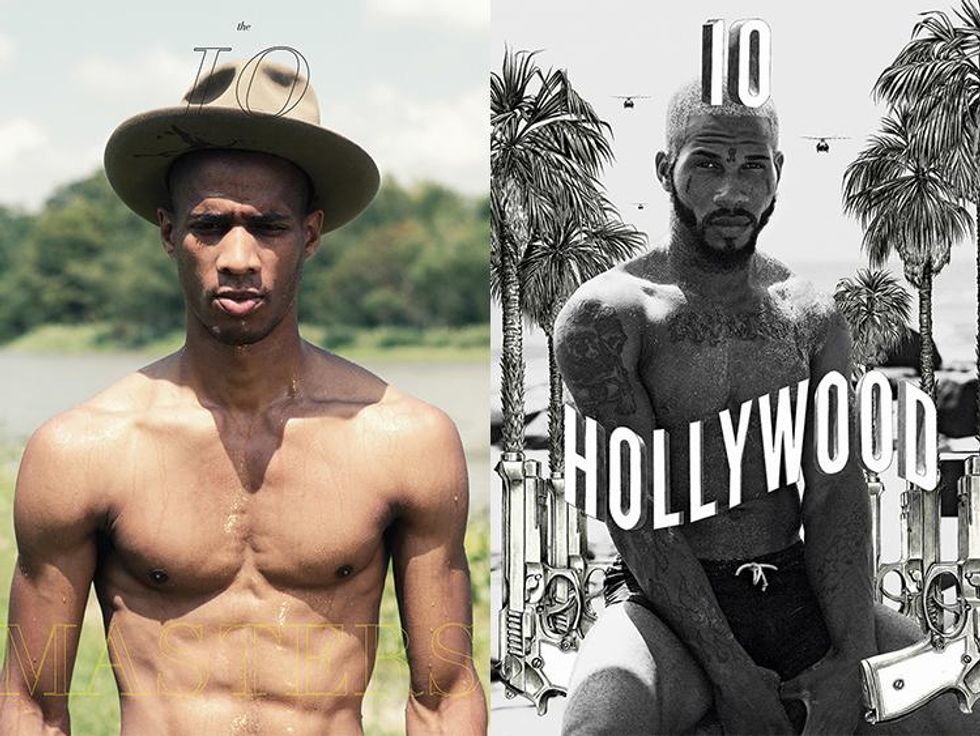
The trio behind the biannual queer magazine have plenty to say. Are you listening?
March 11 2016 5:00 AM EST
November 04 2024 11:07 AM EST
By continuing to use our site, you agree to our Private Policy and Terms of Use.

The trio behind the biannual queer magazine have plenty to say. Are you listening?
Photography by Daymon Gardner.
In his 1903 essay, W.E.B. Du Bois describes "the Talented Tenth" as "leaders of thought and missionaries of culture" who could ultimately elevate the black race. The theme of Du Bois's essay (and its name) live on in The Tenth Zine, the independently published biannual magazine by Andre Verdun Jones, Khary Septh, and Kyle Banks, which explores the myriad ways of being black and queer in America.
Made in collaboration with a network of black queer artists, writers, and intellectuals, The Tenth might be said to elevate the community it represents, couching its messages of power and pride in highly stylized imagery. In the third and current volume, for example, an alpaca farm in the middle of Michigan becomes the backdrop for a much larger conversation about race, reparations, and the hierarchies of power. Meanwhile, Hollywood, as both the idea and manufacturer of the American dream, is at the heart of the volume's critiques of a culture besotted with fame and glamour, within a city whose liberal sheen belies decades of racial injustice.
"When we started the project, the design of it was a way for us to speak to the evolved black queer aesthetic," says Septh, The Tenth's creative director, who notes the influence of this aesthetic in shaping the major divas throughout the ages, not to mention the prevalence of realness, reading, shading, slaying, and all things "fiiiiiieeeerce." The three men, all experienced curators of this aesthetic, sought to bring to The Tenth the same kind of passion, professionalism, and polish they had brought to their careers in the corporate world.
Says Septh, "We just wanted to be super unapologetic about it -- to go in and work the way we would for the best and biggest client in the world. If Vuitton was calling, girl, how off would we go?"
Last summer, The Tenth's headquarters relocated from Septh's hometown, Brooklyn, to his boyfriend Banks's native New Orleans. The move has allowed them to refresh their creative palates while drawing inspiration from a very different, yet still very vibrant local scene.
"It's just got more soul," Septh says of the city. "I feel like we're getting more soul. At first it was, 'How do we make this recognizable to a white girl?' The new thing is, 'How do we make this recognizable to kids that look like us, who are pulling out tears from the magazine and posting them on their wall? How are we going to make stories that are speaking in an elevated way to them?' "

"It's just very frustrating," Jones admits, adding that he, Septh, and Banks ask each other at least once a week why this is the case. "The work we do is 10 times better than our counterparts -- and I don't want to undermine what they're doing, because they're doing great work as well, but we're getting into more conversations and writing about radical, deep, black stuff that's really personal to us. So [the magazine] is allowing us to have conversations with each other -- we're not just about images."
They suspect it's this decidedly black and queer perspective that makes it harder to keep up with the (white) Joneses, but it's also what draws the audience as well as the talent to the project. For all its struggles, The Tenth fulfills the promise of W.E.B. Du Bois's vision, serving to excite, inspire, and unite a community previously only unified under the umbrella of a shared racial identity.
"The work that these young men are doing through The Tenth is legendary," says Randal Jacobs, a Michigan-based stylist, who contributes to the magazine and connected it with local talent and resources, including the alpaca farm.
"Too often we wait for someone else to give us a chance, justice, or opportunity. There is too much happening in the world, especially for black bodies, to wait for any of it. Martin Luther King, Jr., asked how long we had to wait for justice. The Tenth isn't waiting -- it's creating a way."
Like what you see here? Subscribe and be the first to receive the latest issue of OUT. Subscribe to print here and receive a complimentary digital subscription.
Sexy MAGA: Viral post saying Republicans 'have two daddies now' gets a rise from the right